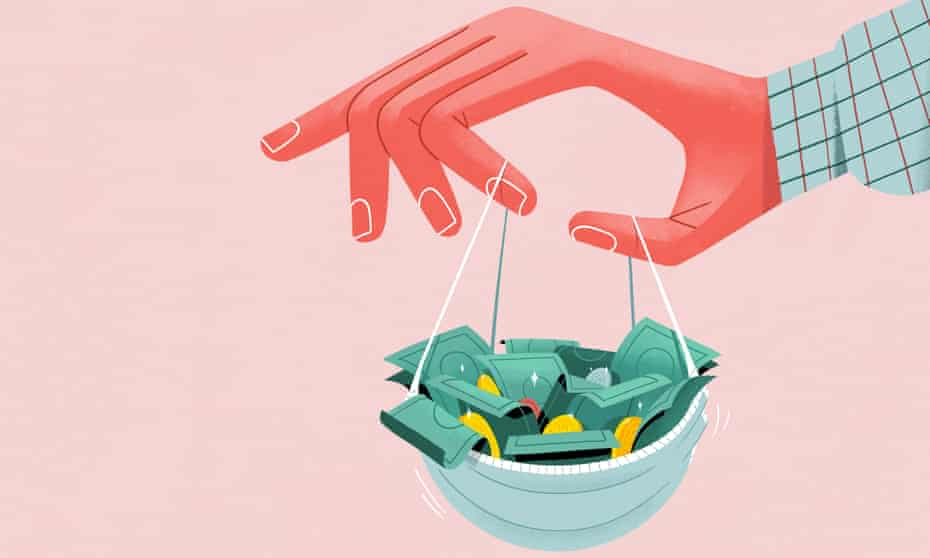Happy Thursday. As we close out September, which is Life Insurance Awareness month, can you guess what percent of life insurance policy shoppers have no idea how much coverage they need? a. 20%, b. 40%, c. 60%. Check the answer in the "Trending" section below. Here are the money topics for today:
BUYING A HOMEIf you can’t beat an all-cash offer, offer one yourselfIn an uber-competitive home market where demand is far exceeding supply, homeowners have the upper hand and the luxury of choice. Because of this, sellers rarely have to settle for subpar offer sheets and often control the leverage. Luckily, there remains a reliable solution to beat out the competition. Money talks, especially when it comes in the form of cash on the barrelhead. Even if a buyer isn’t paying top-dollar or above the asking price for a home, the virtue of paying in cash and circumventing the lenders can be quite an appealing proposition. There’s an app for that 23% of homes sold in July were bought with straight cash, up 7% from a year prior. The real estate environment looks more like homebuyers Hunger Games, and it’s becoming more and more necessary to pony up an offer with a high cash value. Trouble is, not everyone and their cousin have a few hundred thousand stuffed in their mattress. Thankfully, we’ve now invented a solution for this gap. Startups and industry thoroughbreds alike are beginning to roll out cash-offer programs to help prospective homebuyers without the capital be able to make a legitimate cash offer on a home. Blue bloods such as Redfin, Opendoor, Ribbon, Homelight and more are starting to make cash offers on behalf of clients, and then resell the home to them once the loan has closed. What’s in it for them? Well, fees and commissions from 1-3% of course, as any good middle-man would require. Prospects going forward Every dog has its day, but is this a laudable long-term addition to real estate fintech? In short, probably, at least to an extent. In a competitive market with widespread shortages for the foreseeable future, it’s certainly an option. It’s a unique idea that allows for needed flexibility for homebuyers, but the longevity and wider-scale impact is still unknown. Of course, there are still some headwinds coming too. With the Fed expected to begin tapering within the next couple of quarters, interest rates will undoubtedly rise from their record lows to less appealing rates, subjectively speaking. This could impact the buyer's ability to afford loans, and zap a little demand from the hot housing market. CRYPTO ASSETSNFT scams are hereWhere there’s an organism, there’s an equal amount of parasites eagerly awaiting a chance to siphon something from it. No financial industry is safe from scams, and it’s perhaps the newer sectors that are often most vulnerable to novel attacks. Despite the advent of cryptocurrency and all their derivative counterparts boasting security and decentralization, they’re still susceptible to breaches, and sometimes crypto’s biggest strength can be turned into its biggest weakness. Some important knowledge before venturing into NFTs NFTs are, in the simplest of terms, uniquely identifiable original pieces of online artwork or collectibles. What you define as art is a personal thing, and the NFT market encompasses everything from Tweets to NBA highlights and pixel art. Think of it as a much cooler version of collecting baseball cards or art. (We covered these more in-depth here.) NFTs are stored in digital wallets, either in an online hot-wallet or offline in what’s called cold storage. An example of a hot wallet would be keeping your crypto stored on Coinbase, whereas a cold wallet is something physical and offline, like a Ledger wallet. Hot wallets are considered much riskier to store large amounts of crypto. Why? What’s the difference between a hot wallet and a bank account? Crypto is not FDIC insured. The importance of keys So, about the scams. One of the appealing things about NFTs and their ability to be stored in a wallet, specifically a cold storage device, is that they’re only accessible with your private keys. The keyword here is private. Most NFT scams that occur happen via accessing someone’s private keys, thereby granting the hacker access to your wallet. Even the most technically savvy, educated investors can sometimes fall prey to seemingly innocuous scam tactics. There are tons of horror stories strewn across the internet of NFTs worth north of 6 figures being lifted without a trace, sometimes to never be recovered. Before venturing into the NFT space, or the world of crypto in general, it’s important to understand that this isn’t our traditional financial system or your everyday collectibles. As lucrative and cool as they may be, it’s still the wild west, and educating yourself is your best defense. SPONSORED BY HEREReturns on vacation rentals average nearly 129% more than any other class of real estate investment. Here enables anyone to buy fractional shares of vacation rentals and earn passive income from the highest-yielding asset class in real estate without ever lifting a finger. Get early access to the future of real estate investing. Request an invitation today. FINANCIAL FREEDOMPrioritizing your financial goalsTaking care of your finances can sometimes feel like a second full-time job or a never-ending puzzle. And with so many moving targets to keep up with in life, it can be overwhelming to prioritize it. The most important part of prioritizing your finances is to fall in love with the process because trying to fix the whole array at once will not leave you feeling fulfilled. Move forward in baby steps with intentionality, knowing each step leads closer to the end goal. A few paramount tips:
💡Check out this pretty neat flow chart we saw posted on a Reddit post that may help some of you get those priorities in action! ASHU'S CORPORATE CORNERToday's Movers & Shakers
This commentary is as of 8:57 am EDT. TRENDING ON FINNY & BEYOND
Have a good rest of the week! The Finny Team If you liked this post from The Gist by Finny¹, why not share it? 1 Finny is a personal finance education start-up offering game-based personalized financial education, a supportive discussion forum, and simple stock and fund tools. Our mission is to make learning about all things money fun and easy! The Gist is Finny's newsletter to our community members who are looking to make and save more money, protect their finances and be their own bosses! Finny does not offer investment or stock advice. The Gist is sent twice a week (Tues & Thurs). The editorial team: Austin Payne and Chihee Kim. Thanks to Ashu Singh for Today's Movers & Shakers. *Sponsors or advertisers offer unique consumer services. We're thankful for their sponsorship to enable Finny to offer free financial education. Here's our advertiser disclosure. If you have any feedback for us or are interested in sponsoring The Gist, please send us an email to feedback@askfinny.com. |
2021年9月30日星期四
😤 If you can't beat 'em, join 'em
订阅:
博文评论 (Atom)






没有评论:
发表评论